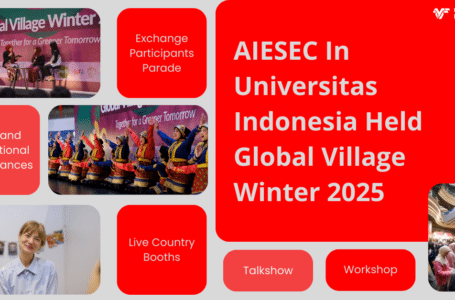
By Pradhipto Bagas Wicaksono
The term ‘Korean Wave’ is not a strange phrase for Indonesian and that phenomenon never seems to have an end in sight. With the rapid spread of influence on South Korean’s modern pop culture around the globe especially Indonesia, influencing the minds of the youth resulting in Korean pop culture as the frequent trending topic that never seems to fade away to this day. Due to the existence of Korean Wave, it successfully influenced Indonesia to consider Korean pop culture as the integral part of its society.
Looking back to its history, South Korea was in a state of development as much as Indonesia today. It faced numbers of economic as well as political struggle. Its ambition to develop its nation, South Korea tired to open itself to the world. Now let us narrow the focus of how the Korean Wave or known as ‘Hallyu’ brought South Korea into the world stage. It all started in the between 1990s to 1997 financial crisis. The Ministry of Culture planned for its ambitious to strengthen South Korean culture by involving numbers of cultural department establishments within universities.
The popularity of South Korea’s identity started to grow worldwide step by step with its initial presence of cultural influence in China. The rise of the Korean Wave then grows to numbers of countries in East Asia as well as Southeast Asia which then spreads to many region around the world with its popularity of its traditional and its pop culture. Due to the wide popularity of its identity, this created its own image of how South Korea is portrayed by the world in a positive spotlight. That being said, this country had successfully shifted the world’s image of South Korea. Thanks to the effort of its Ministry of Foreign Affairs, the public image finally became the country of K-Dramas and K-Pop instead of being reminded only involved in the ‘Korean War’ and making the global public to be able to distinguish North and South Korea being two different states.
When it comes to Indonesia with its cultural richness, it has always been doing the effort to promote its culture for the sake of gaining worldwide recognition for its national identity. Ranging from traditional dances, culinary, and tourism. Yet, the public image of Indonesia is not as what Indonesia expected ranging from foreigners thought how Bali as its own country and neglected the existence of Indonesia, Indonesia portrayed for being dangerous due to the large Muslim population, natural disasters, and accusations of human right violations.
Enhancing Indonesia’s reputation without a doubt is one of the necessary steps to be taken. Back to the case of South Korea, as mentioned before that repairing the distorted image of South Korea will increase the chance of smooth public diplomacy attempt, hence Indonesia needs to be creative, active, or even quite ‘aggressive’ to strengthen its work to improve Indonesia’s name by promoting its beauty and the meaning of each of Indonesia’s diverse culture and society.
Strong public diplomacy itself is not enough to strengthen Indonesia’s soft power. Hallyu’s success happened thanks to cultural competitiveness. Earlier, South Korea’s popular culture could not compete well against the influence of the West and he Japanese. Therefore this pushed South Korea to improve its attractiveness (also due to cultural hybridity of foreign influence which South Korea take advantage of) making it experienced a sharp increase in popularity.
Indonesia does have achievements regarding what had been done through public diplomacy. The cultural popularity ranging from the food, dances, and traditions that is known to many countries, the fame of Indonesian pop songs and ‘Sinetrons’ that are highly favourable in neighboring countries such as Malaysia and Brunei Darussalam, and other examples of how Indonesia is able to do its public diplomacy successfully. If Indonesia continues to increase its soft power as much as South Korea (with South Korea’s approach), there is no doubt that the government should be very active to drive industries that focus on promoting Indonesia’s identity (i.e. entertainment media, tourism, etc.) to be well-known abroad and cooperate to increase Indonesia’s popularity.
Sources
- https://resources.elitetranslations.asia/2017/01/04/hallyu-wave-started/
- https://e-journal.unair.ac.id/JGS/article/view/8269
- https://s-space.snu.ac.kr/handle/10371/100236
- https://masteringbahasa.com/what-do-malaysians-think-of-indonesian-music
Writer’s Bio

Pradhipto Bagas Wicaksono, one of the RnD team members in Indonesia Youth Foundation is primarily a global affairs enthusiast who loves to learn the depth of diplomacy and international relations-related topics. With his tendency to learn a variety of knowledge, he is also keen to get to know every topic that he finds very useful and applicable for the benefit of him and others.








2 Comments
[…] This article is originally published in: https://indonesiayouthfoundation.org/korean-wave-lesson-for-indonesias-soft-power-diplomacy/ […]
Incredible! This blog looks just like my old one! It’s on a
totally different topic but it has pretty much the same page layout and design. Excellent choice
of colors!